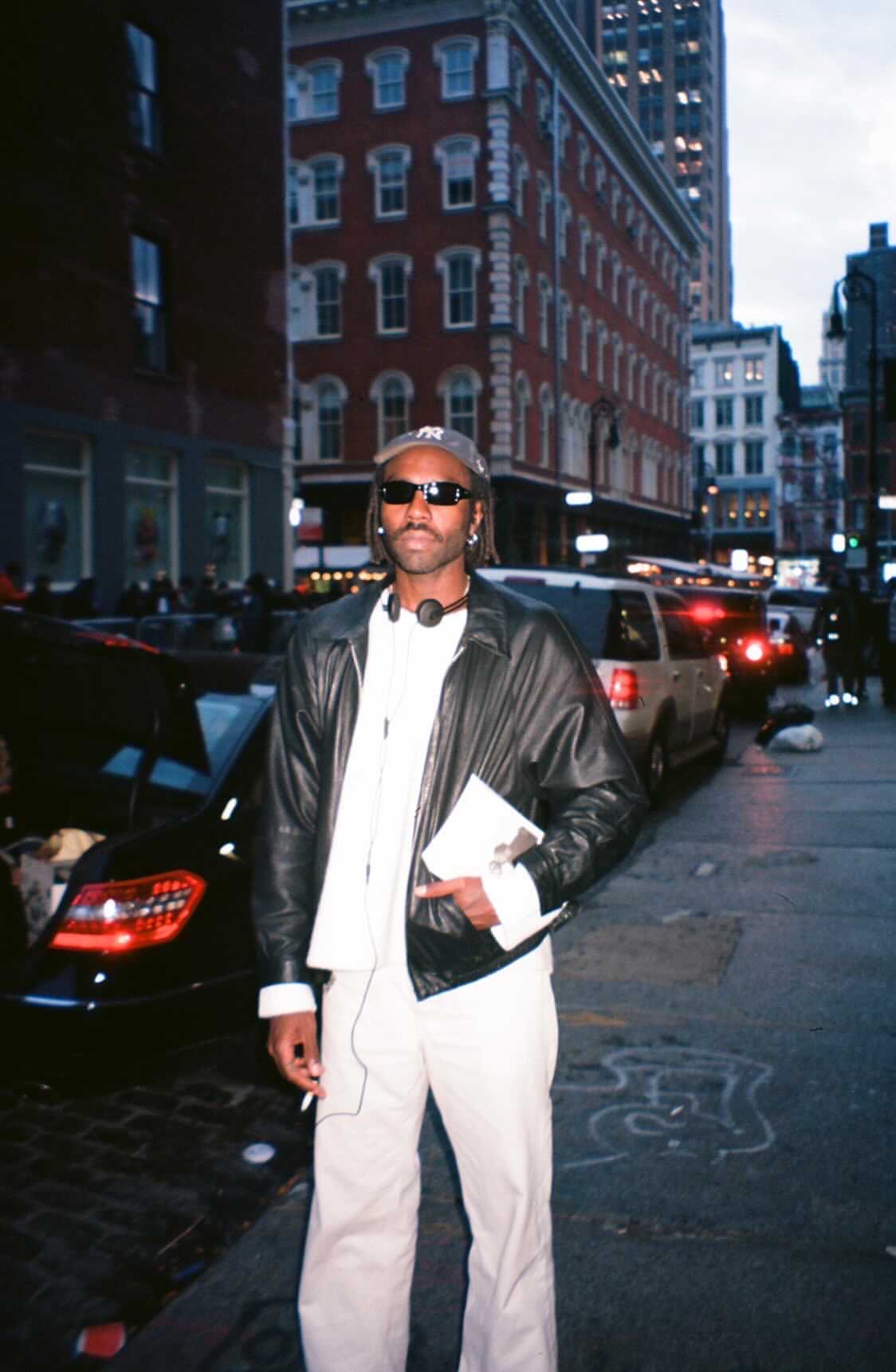Full price: 14 euros
Reduced price: 10 euros
Member price: 7 euros
Following a two-night tribute to Julius Eastman in the fall of 2021, the Bourse de Commerce - Pinault Collection and the publishing house Éditions 1989 invite British composer Devonté Hynes to perform several pieces by Julius Eastman (1940-1990). He is accompanied on stage by pianist Adam Tendler, percussionist Jonathan Hepfer and seven string players.
This program celebrating Eastman's work was conceived by Devonté Hynes on the occasion of the release of the book Gay Guerrilla: l’histoire de Julius Eastman (Editions 1989, 2022), the first book in French dedicated to the late composer for which he wrote the foreword.
Julius Eastman
A well-known figure of the New York musical avant-garde, Julius Eastman is a composer, pianist and singer born in 1940. His professional journey began at Ithaca College in New York State. Braving adversity penniless, yet with a few compositions in hand, in the 1970s he joined the experimental downtown New York music scene, collaborating with John Cage, Arthur Russell, Meredith Monk and Peter Maxwell Davies. In 1990, after seven years of "voluntary martyrdom" amidst psychotropic drugs and homeless wanderings, Eastman died and fell into obscurity. Gay Guerrilla: L’histoire de Julius Eastman is the first French-language book devoted to the artist. Since the beginning of the 2010s, his work has been rediscovered and is attracting growing interest.
African-American, Eastman used his art throughout his life as a shield against the racial tensions dividing the United States, selecting titles for his compositions (Evil Nigger; Crazy Nigger) to shake up morals. Partly inspired by Patti Smith and her anthem Rock N Roll Nigger, these controversial titles were meant to honor Africans for their importance in the history of building the American economy and constitute one of the singularities of his work.
Programme
Buddha (1984), a piece whose graphic score suggests a plurality of possible interpretations.
Femenine [excerpt] (1974), a piece written for the S.E.M. Ensemble, a chamber music group founded by Julius Eastman and Czech composer and flutist Petr Kotik. The compositions written for this group exceed the strict framework of “minimalism” and manifest more and more clearly his gay identity.
Evil Nigger (1979), is part of The N*gg*r series (1979): Crazy N*gg*r, Evil N*gg*er and Gay Guerrilla. These pieces echo Patti Smith's Rock N Roll Nigger anthem as to the deep, committed issues associated with the struggle for racial equality.
Intermission
Gay Guerrilla (1979), is a work in which Eastman meditates upon his existence one decade after the Stonewall riots, proudly asserting his identity as a gay man. He states: 'What I am trying to achieve is to be what I am to the fullest – Black to the fullest, a musician to the fullest, and a homosexual to the fullest. It is important that I learn how to be, by that I mean accept everything about me.'
Devonté Hynes
Devonte Hynes is a producer, multi-instrumentalist, composer, songwriter and vocalist. Raised in England, he started in the punk band Test Icicles before releasing two orchestral acoustic pop records as Lightspeed Champion. Since 2011, Dev has released four solo albums under the name Blood Orange. He produced the music for the films Palo Alto (2013), Queen and Slim (2019) and Clair-obscur (2021). Hynes was recently nominated for two Grammy Awards for his classical music debut album, Fields.
Editions 1989
Éditions 1989 is a publishing house focusing on the legacy of underrepresented artists working within experimental music, experimental films, performance, dance, and sound art. Éditions 1989 aims to preserve, nurture, and present to a broad audience the work of historic and emerging artists.
Crédits
Music : Julius Eastman
Direction, interpretation and piano : Devonté Hynes
Artistic Director and percussion : Jonathan Hepfer
Piano : Adam Tendler
Violins; Antoine Maisonhaute, Ivan Lebrun
Violas: Paul-Julian Quillier, Nadine Ousaad
Cellos: Eric-Maria Couturier, Renaud Dejardin
Double bass: Nicolas Crosse
Publisher, Éditions 1989 founder : Anaïs Ngbanzo
